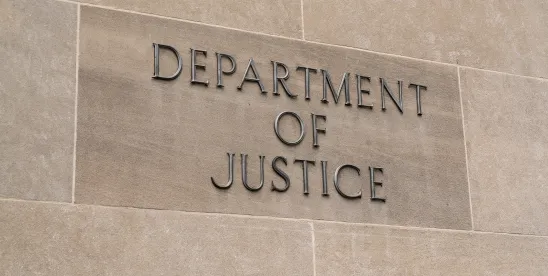On May 30, 23 Senators signed a letter to the Attorney General, calling on the U.S. Department of Justice’s (DOJ) Antitrust Division to “use every tool” to investigate the oil industry for potential violations of the Sherman Antitrust Act, including price fixing. This was followed by a similar letter on June 4 from members of the House of Representatives Judiciary Committee, urging the DOJ “to immediately open an investigation into a potential antitrust conspiracy among U.S. oil producers, OPEC, and OPEC+.”
The requests come in the wake of the Federal Trade Commission’s (FTC) review of the merger between oil and gas producer and refiner Exxon Mobil (Exxon) and crude oil and natural gas producer Pioneer Natural Resources (Pioneer). In a recently released complaint, the FTC alleges that Scott Sheffield, Pioneer’s former CEO, “campaigned to organize anticompetitive coordinated output reductions” among U.S. crude oil producers, including OPEC. According to the complaint, Sheffield’s actions were “designed to pad Pioneer’s bottom line — as well as those of oil companies in OPEC and OPEC+ member states — at the expense of U.S. households and business.”
Although the FTC alleges anticompetitive activities involving Sheffield, OPEC, and other industry representatives, it ultimately approved the merger between Exxon and Pioneer on May 2 but also approved a consent order barring Sheffield from joining Exxon’s board of directors or serving in an advisory capacity in any way to the board or Exxon management. The FTC’s complaint prompted members of Congress to urge the DOJ to launch an industrywide investigation to confront potential “corporate malfeasance.” The June 4 letter asserted that “the FTC’s allegations suggest a potentially widespread conspiracy . . . to keep prices high by artificially suppressing production.”
This is not the first time that the oil sector has drawn attention from Congress. For example, in 2022 the U.S. House of Representatives Energy and Commerce Subcommittee on Oversight and Investigations conducted a hearing with six senior oil company executives to determine why refined gas prices remained high, despite a drop in prices for unrefined crude oil.
Over the years, Congress has explored different avenues for regulating the oil industry and addressing potential antitrust concerns. In 2000, Senator Herb Kohl first introduced the No Oil Producing and Exporting Cartels Act (NOPEC) to address the issue that foreign governments and international cartels, including OPEC, cannot be sued for failing to comply with U.S. antitrust laws. The purpose of the bill was to extend the protections of the Sherman Act’s provision against collusion to entities like OPEC. A version of NOPEC has been introduced approximately 16 times since that first attempt, including as recently as 2023, but the proposed legislation has never been signed into law. In its June 4 letter, House Judiciary Committee members asked the DOJ to respond to certain questions, including whether a bill like NOPEC would enhance DOJ’s ability to investigate and enforce U.S. antitrust laws against foreign oil producers.
It remains to be seen exactly what will come from Congressional calls for the DOJ to examine the oil industry. At a minimum, given the specificity of some of the allegations in the FTC complaint, a criminal investigation by the Antitrust Division is a very real possibility.





 />i
/>i
